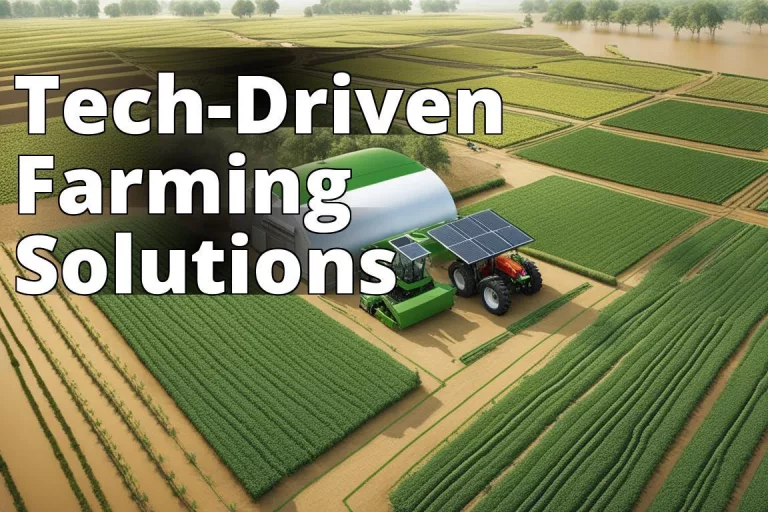Smart farming for climate adaptation is a pivotal approach in revolutionizing agriculture to combat the challenges posed by climate change. With the increasing impact of environmental shifts on traditional farming practices, the integration of technology and sustainable agricultural methods becomes paramount. In this comprehensive article, we will delve into the significance of smart farming for climate adaptation, explore the tools and resources available for climate-adaptive farming, analyze best practices, policy implications, and share real-life case studies and success stories. Furthermore, we will discuss the challenges, opportunities, and future outlook of smart farming for climate adaptation, as well as the global and regional implications of this approach. Additionally, we will provide a product review and recommendations for those looking to implement climate-adaptive agriculture practices. Let’s embark on this insightful journey to understand the transformative potential of smart farming for climate resilience.
What You Will Learn About Smart Farming for Climate Adaptation
- Definition, significance, and challenges of climate-resilient farming.
- Tools, resources, and best practices for adapting to climate change in agriculture.
- Role of technology, policy, and collaboration in climate-adaptive agriculture.
Definition and Significance
Smart farming, also known as precision agriculture, encompasses the utilization of advanced technologies, data-driven insights, and sustainable practices to optimize farming operations. When integrating smart farming with climate adaptation, the focus shifts towards implementing strategies that mitigate the impact of climate change on agricultural productivity. This includes utilizing innovative tools such as IoT devices, data analytics, and precision farming equipment to enhance farm management in a changing climate.
Addressing Challenges of Climate Change in Agriculture
Climate change poses significant challenges to traditional agricultural practices, including erratic weather patterns, water scarcity, and the increased prevalence of pests and diseases. Smart farming for climate adaptation aims to address these challenges by enabling farmers to make informed decisions based on real-time data, thus enhancing their ability to adapt to changing environmental conditions.
Importance of Climate-Smart Agriculture in Sustainable Farming
Climate-smart agriculture is essential for promoting sustainable farming practices that not only withstand climate variations but also contribute to environmental conservation. By prioritizing climate-adaptive farming techniques, farmers can minimize their ecological footprint and contribute to climate change mitigation efforts while ensuring long-term agricultural productivity.
With a clear understanding of the foundational concepts of smart farming for climate adaptation, we will now explore the diverse tools and resources available to aid farmers in effectively managing climate risks and enhancing the resilience of their agricultural practices.
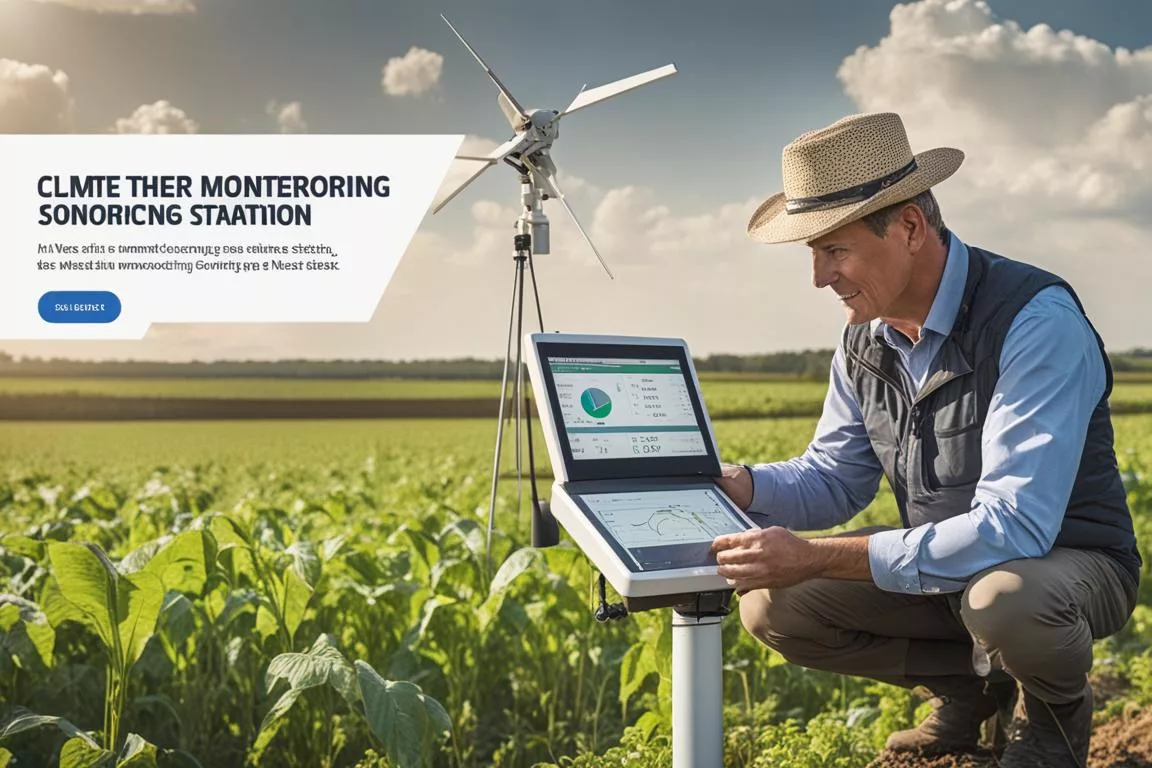
Tools and Resources for Climate-Adaptive Farming
In the realm of climate-adaptive farming, several tools and resources have emerged to empower farmers and agricultural practitioners in making informed decisions and implementing sustainable practices.
Decision-Making Tools for Climate Risk Management
Decision support tools, such as those offered by the Climate Smart Farming team at Cornell University, provide valuable insights into climate risk assessment, freeze damage potential, optimal timing for manure application, and the viability of winter cover crops. These tools play a crucial role in helping farmers proactively manage climate-related risks and optimize their farming strategies.
Technologies for Increasing Farm Resilience and Sustainability
Technological innovations, including IoT devices, weather monitoring systems, and precision agriculture equipment, are instrumental in enhancing the resilience and sustainability of farming operations. These technologies enable real-time monitoring of environmental conditions, crop health, and resource utilization, empowering farmers to adapt their practices in response to changing climate patterns.
Online Platforms, Apps, and Software for Informed Decision Making
Online platforms and mobile applications focused on climate-smart agriculture provide farmers with access to a wealth of resources, best management practices, and decision-making support. These digital tools offer insights into soil health management, animal agriculture, cover crops, and climate change impacts, enabling farmers to stay informed and implement sustainable farming practices.
As we continue our exploration, we will delve into the best practices in climate-adaptive agriculture, emphasizing the crucial role of reducing emissions, soil health management, water conservation, and livestock and crop management.
Best Practices in Climate-Adaptive Agriculture
Reducing Emissions and Increasing Profitability
Implementing practices that reduce emissions while increasing profitability is a cornerstone of climate-adaptive agriculture. This involves adopting techniques such as reduced tillage, optimized nutrient management, and the integration of renewable energy sources to minimize greenhouse gas emissions and maximize farm profitability.
Soil Health and Nutrient Management for Climate Resilience
Maintaining soil health and efficient nutrient management are pivotal for building climate-resilient agricultural systems. Practices such as cover cropping, crop rotation, and precision application of fertilizers contribute to soil conservation and enhance its capacity to withstand climate variations.
Water Conservation and Management in the Face of Climate Change
Water scarcity is a pressing concern in the context of climate change, making water conservation and efficient management critical for agricultural sustainability. Smart irrigation systems, rainwater harvesting, and precision water management technologies play a vital role in conserving water resources and ensuring their optimal utilization in farming practices.
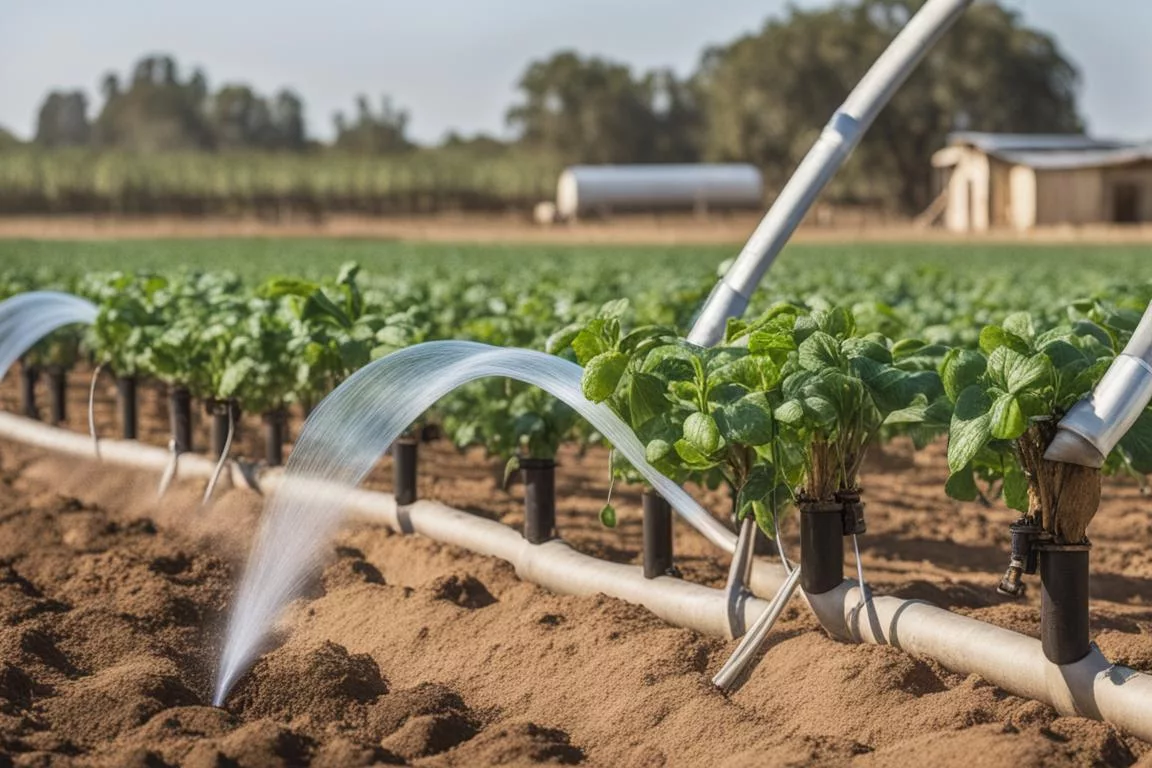
Livestock and Crop Management for Climate Adaptation
Adopting climate-resilient livestock and crop management practices is essential for mitigating the impact of climate change on agricultural productivity. This includes promoting resilient crop varieties, implementing effective pest and disease management strategies, and integrating sustainable livestock management practices to enhance the overall resilience of agricultural systems.
The next section will focus on the policy and support mechanisms in place to facilitate climate-adaptive agriculture, highlighting the role of governmental organizations, financial assistance, and support from agricultural institutions and international bodies.
Policy and Support for Climate-Adaptive Agriculture
Role of Governmental Organizations in Promoting Climate-Adaptive Farming
Governmental organizations play a vital role in promoting climate-adaptive agriculture through the development and implementation of policies that support sustainable farming practices. This includes providing incentives for the adoption of climate-resilient technologies, offering grants for sustainable agriculture initiatives, and fostering partnerships to enhance the resilience of agricultural communities.
Financial Assistance and Incentives for Farmers and Landowners
Financial assistance and incentives are crucial for empowering farmers and landowners to embrace climate-adaptive agricultural practices. Programs offering funding for climate change mitigation, support for sustainable land management, and incentives for adopting climate-smart technologies are instrumental in driving the transition towards resilient and sustainable farming practices.
Support from Agricultural Institutions and International Bodies for Climate Adaptation
Agricultural institutions and international bodies play a pivotal role in providing technical expertise, research support, and knowledge dissemination to enhance climate adaptation in agriculture. Collaborative efforts between agricultural institutions and international organizations contribute to the development of best practices, knowledge sharing, and capacity building for climate-resilient agricultural systems.
By understanding the policy landscape and support mechanisms, it becomes evident that collaborative efforts are essential for driving meaningful change in the agricultural sector. In the upcoming section, we will explore real-life case studies and success stories that showcase the positive impact of climate-adaptive farming practices on agricultural operations and the environment.
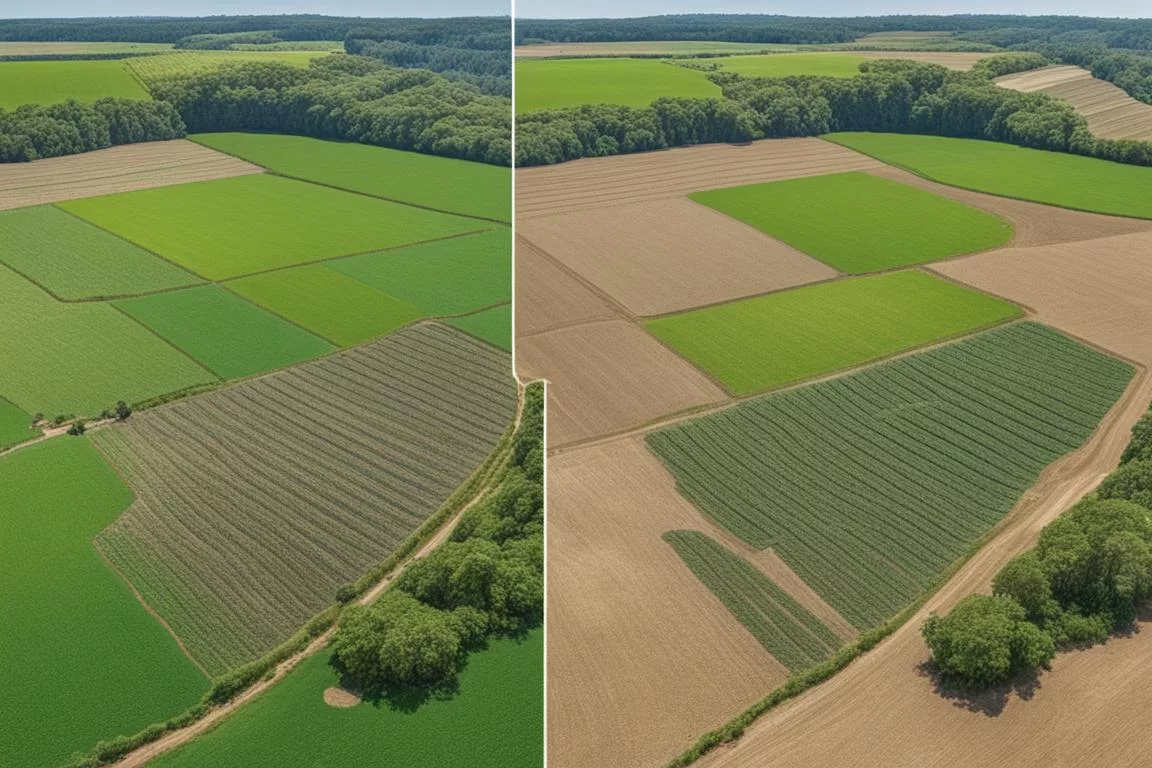
Case Studies and Success Stories in Climate-Adaptive Farming
Real-life examples of successful implementation of climate-adaptive farming practices provide valuable insights into the transformative potential of sustainable agricultural methods. These case studies and success stories highlight the positive impact of climate-adaptive technologies and practices on farm productivity, environmental conservation, and community resilience.
Real-Life Examples of Successful Implementation
Numerous farmers and agricultural practitioners have successfully implemented climate-adaptive farming practices, resulting in improved farm resilience, enhanced productivity, and reduced environmental impact. These examples serve as inspiring models for the integration of sustainable practices in diverse agricultural settings.
Positive Impact on Agricultural Operations and Environment
The adoption of climate-adaptive farming practices has demonstrated a positive impact on agricultural operations by enhancing resource efficiency, reducing emissions, and promoting ecological sustainability. Additionally, these practices contribute to environmental conservation by preserving natural ecosystems and minimizing the ecological footprint of agricultural activities.
The positive outcomes observed in these case studies underscore the transformative potential of climate-adaptive agriculture. In the following section, we will delve into the integration of climate-adaptive technologies, emphasizing precision agriculture, IoT applications, and data analytics for informed decision making in the face of climate change.
Integration of Climate-Adaptive Technologies
The integration of climate-adaptive technologies in agriculture plays a pivotal role in enhancing the resilience and sustainability of farming operations. This section will focus on the application of precision agriculture, IoT solutions, and data analytics to empower farmers in making informed decisions and optimizing their practices in response to climate variability.
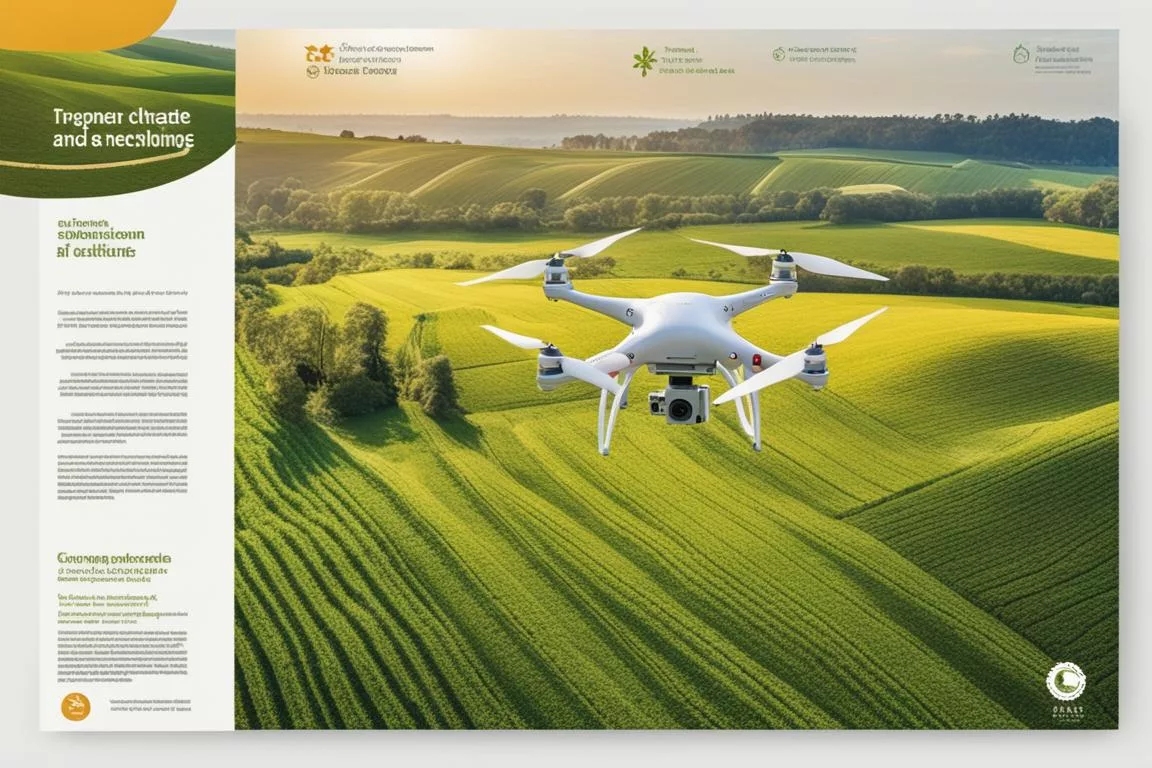
Precision Agriculture for Climate Adaptation
Precision agriculture leverages advanced technologies such as GPS, remote sensing, and data analytics to optimize resource utilization, enhance crop management, and mitigate the impact of climate variability on farming operations. By enabling precise and targeted interventions, precision agriculture contributes to climate resilience and sustainable farm management.
Internet of Things (IoT) in Farming for Climate Resilience
IoT applications in farming facilitate real-time monitoring of environmental conditions, crop health, and resource utilization, providing farmers with valuable insights into the impact of climate variability on their agricultural practices. IoT devices enable proactive decision making and the implementation of adaptive strategies in response to changing environmental conditions.
Data Analytics for Informed Decision Making in the Face of Climate Change
Data analytics plays a crucial role in empowering farmers with actionable insights into climate variability, crop performance, and resource utilization. By leveraging advanced analytics tools, farmers can make informed decisions, optimize their farming practices, and adapt to changing climate patterns, thereby enhancing the resilience of their agricultural operations.
As we continue our exploration, we will delve into the challenges and opportunities inherent in climate-adaptive agriculture, highlighting the initial investment costs, long-term benefits, and opportunities for sustainable farming in a changing climate.
Challenges and Opportunities in Climate-Adaptive Agriculture
Initial Investment Costs and Knowledge Gaps
The adoption of climate-adaptive technologies and practices often involves initial investment costs and knowledge gaps, presenting challenges for farmers, especially small-scale and resource-limited agricultural practitioners. Overcoming these barriers requires targeted support, capacity building, and the dissemination of knowledge to facilitate the widespread adoption of climate-adaptive farming practices.
Long-Term Benefits and Opportunities for Sustainable Farming in a Changing Climate
Despite the initial challenges, climate-adaptive agriculture offers long-term benefits and opportunities for sustainable farming in a changing climate. These opportunities include enhanced productivity, resource efficiency, and environmental conservation, contributing to the creation of resilient and sustainable agricultural systems.
The next section will focus on the future outlook of smart farming for climate adaptation, exploring potential advancements in technology, policy shifts, and the evolving role of farmers in climate adaptation.
Future Outlook of Smart Farming for Climate Adaptation
Potential Advancements in Technology for Climate Adaptation
The future of smart farming for climate adaptation holds promising advancements in technology, including the development of innovative tools, precision agriculture solutions, and sustainable farming practices. These advancements are poised to further enhance the resilience and sustainability of agricultural operations in the face of climate variability.
Policy Shifts and the Role of Farmers in Climate Adaptation
Anticipated policy shifts, including increased support for climate-adaptive agriculture and sustainable farming practices, are expected to create an enabling environment for farmers to embrace climate-resilient technologies and practices. Furthermore, the evolving role of farmers as stewards of sustainable agriculture will be instrumental in driving meaningful change in the agricultural sector.
In the subsequent sections, we will explore the collaborative efforts required for climate-adaptive agriculture, emphasizing the importance of stakeholder collaboration and the pivotal roles of farmers, researchers, policymakers, and technology developers in driving climate adaptation.
Collaborative Efforts for Climate-Adaptive Agriculture
Importance of Stakeholder Collaboration for Climate Adaptation
Stakeholder collaboration is essential for driving climate-adaptive agriculture, as it brings together diverse perspectives, expertise, and resources to address the complex challenges posed by climate variability. Collaborative efforts enable the development of holistic solutions and the dissemination of best practices to enhance the resilience of agricultural systems.
Role of Farmers, Researchers, Policymakers, and Technology Developers in Climate-Adaptive Agriculture
Farmers, researchers, policymakers, and technology developers play pivotal roles in driving climate adaptation in agriculture. Farmers are at the forefront of implementing climate-adaptive practices, researchers contribute knowledge and innovation, policymakers create enabling environments, and technology developers provide cutting-edge solutions for climate-resilient farming.
In the subsequent sections, we will explore the global implications of smart farming for climate adaptation, focusing on its contribution to food security, environmental conservation, and its potential for climate change mitigation on a broader scale.
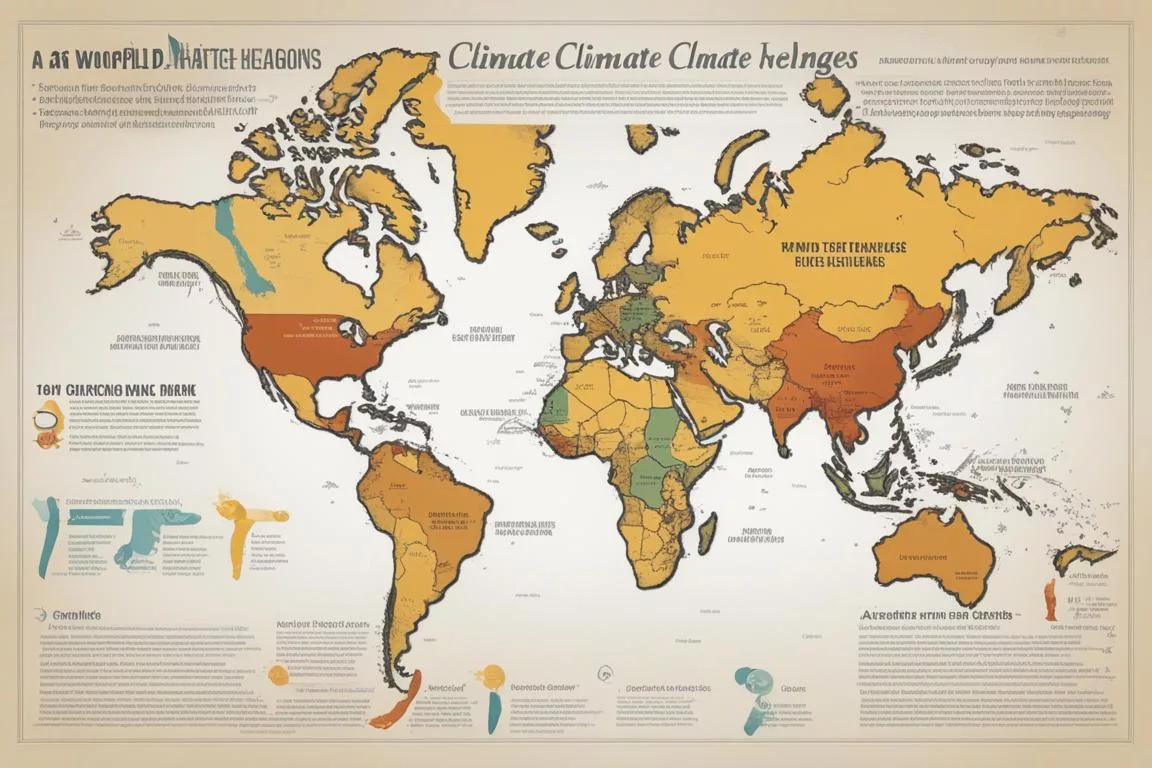
Global Implications of Smart Farming for Climate Adaptation
Contribution to Food Security and Environmental Conservation
Smart farming for climate adaptation holds significant implications for global food security and environmental conservation. By promoting sustainable and resilient farming practices, climate-adaptive agriculture contributes to the production of nutritious food while minimizing its impact on the environment.
Potential for Climate Change Mitigation on a Broader Scale through Climate-Adaptive Agriculture
The widespread adoption of climate-adaptive agriculture has the potential to contribute to climate change mitigation on a broader scale. By reducing emissions, preserving natural ecosystems, and enhancing resource efficiency, climate-adaptive agriculture plays a pivotal role in addressing the broader implications of climate change.
In the subsequent section, we will delve into the regional challenges and opportunities inherent in climate-adaptive agriculture, emphasizing the specific considerations for different regions or countries and the regional impacts of climate change and adaptations in agriculture.
Regional Challenges and Opportunities in Climate-Adaptive Agriculture
Specific Considerations for Different Regions or Countries
Different regions and countries face unique challenges and opportunities in the context of climate-adaptive agriculture. Understanding the specific considerations for each region is essential for tailoring climate-resilient farming practices to address the diverse environmental, social, and economic dynamics that characterize different agricultural landscapes.
Regional Impacts of Climate Change and Adaptations in Agriculture
The regional impacts of climate change necessitate targeted adaptations in agriculture to address the specific challenges posed by changing environmental conditions. By understanding and responding to these regional impacts, farmers and agricultural practitioners can implement context-specific climate-resilient strategies that enhance the adaptive capacity of agricultural systems.
As we approach the conclusion of our exploration, we will delve into the role of data-driven insights and predictive modeling in climate-adaptive agriculture, emphasizing the significance of data analysis for informed decision making in the face of climate change.
Data-Driven Insights and Predictive Modeling for Climate-Adaptive Agriculture
Role of Data Analysis in Climate-Adaptive Farming
Data analysis plays a pivotal role in empowering farmers with insights into climate variability, crop performance, and resource utilization. By leveraging advanced data analysis tools, farmers can make informed decisions and optimize their farming practices to adapt to changing climate patterns.
Predictive Modeling for Informed Decision Making in Climate-Adaptive Agriculture
Predictive modeling enables farmers to anticipate and respond to climate variability by providing insights into future environmental conditions and their potential impact on agricultural operations. By integrating predictive modeling into their decision-making processes, farmers can proactively adapt their practices to enhance the resilience of their agricultural systems.
In the subsequent sections, we will explore innovative approaches in smart farming for climate adaptation, emphasizing agroforestry, regenerative agriculture, carbon sequestration, and climate-resilient crop varieties as integral components of climate-adaptive farming practices.
Innovative Approaches in Smart Farming for Climate Adaptation
Agroforestry and Regenerative Agriculture for Climate Resilience
Agroforestry and regenerative agriculture practices play a pivotal role in enhancing the resilience of agricultural systems in the face of climate variability. By integrating trees, shrubs, and diverse crops into agricultural landscapes, farmers can enhance biodiversity, improve soil health, and create climate-resilient agroecosystems.
Carbon Sequestration and Climate-Resilient Crop Varieties for Climate Adaptation
Carbon sequestration and the cultivation of climate-resilient crop varieties are essential components of climate-adaptive agriculture. These practices contribute to mitigating the impact of climate change by sequestering carbon in agricultural soils and promoting the cultivation of crops adapted to changing environmental conditions.
As we approach the conclusion of our comprehensive exploration, we will provide a product review and recommendations for climate-adaptive agriculture, offering insights into the benefits and limitations of different options in this field.
Product Review and Recommendations for Climate-Adaptive Agriculture
Analysis of Recommended Products for Smart Farming in Climate-Adaptive Agriculture
In the realm of climate-adaptive agriculture, several products and technologies have emerged to facilitate sustainable and resilient farming practices. This section will provide an analysis of recommended products, including precision agriculture equipment, IoT devices, and climate-resilient crop varieties, offering insights into their potential impact on agricultural operations.
Benefits and Limitations of Different Options in Climate-Adaptive Agriculture
Understanding the benefits and limitations of different options in climate-adaptive agriculture is essential for making informed decisions about the adoption of sustainable farming practices. By analyzing the pros and cons of various products and technologies, farmers can optimize their farming strategies and enhance the resilience of their agricultural operations.
In conclusion, the comprehensive exploration of smart farming for climate adaptation has shed light on the transformative potential of climate-adaptive agriculture in revolutionizing traditional farming practices. By embracing sustainable technologies, innovative practices, and collaborative efforts, farmers and agricultural practitioners can enhance the resilience and sustainability of agricultural systems in the face of climate variability. As we embark on this journey towards sustainable and climate-resilient agriculture, it is imperative to embrace the opportunities presented by smart farming and drive meaningful change in the agricultural sector.
Remember to check out our product review and recommendations to explore the diverse options available for climate-adaptive agriculture. Additionally, stay tuned for future advancements in technology, policy shifts, and collaborative efforts that will further enhance the transformative potential of smart farming for climate adaptation.
